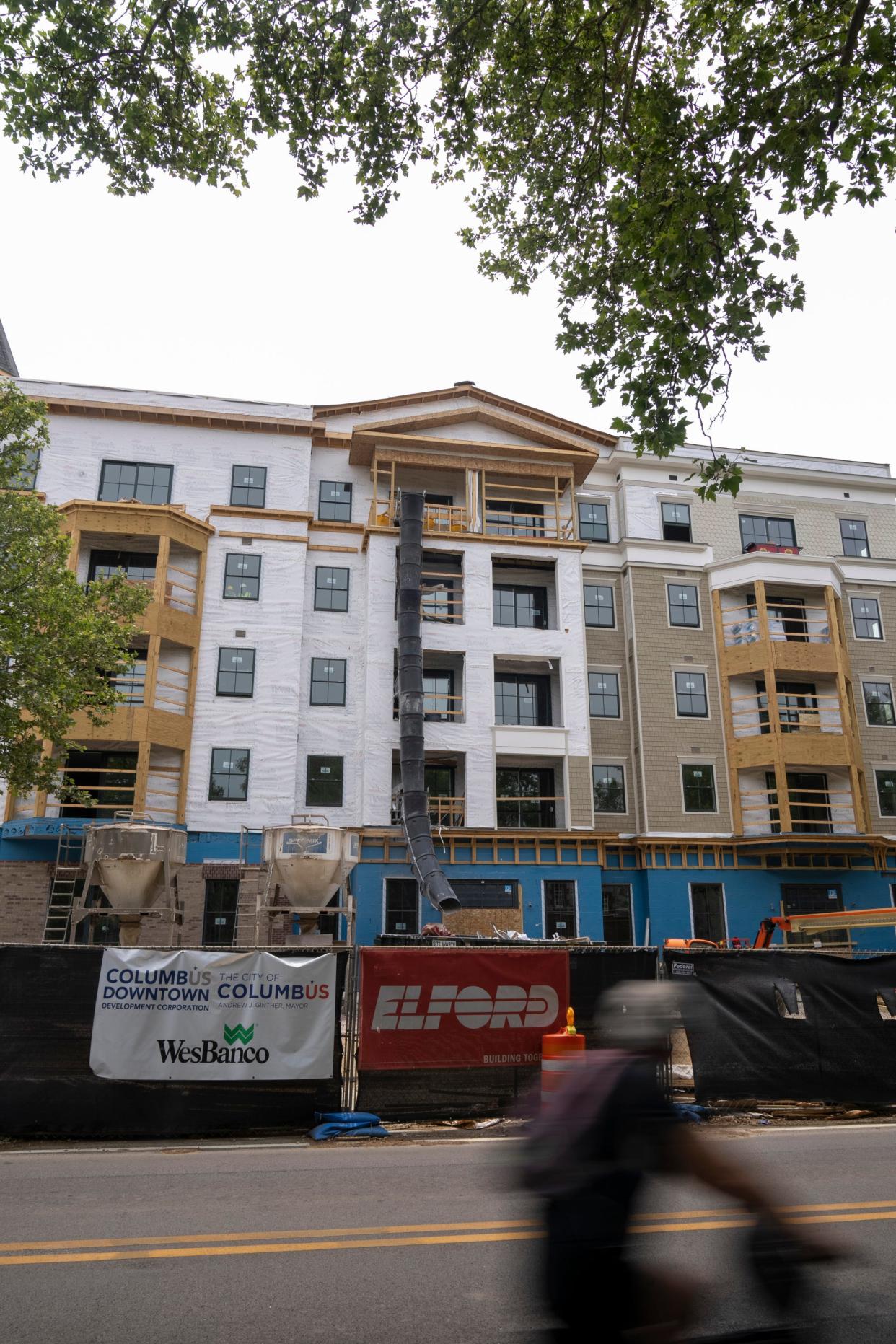Does higher rent equal a shorter life span? Here's what we know

The more you pay in rent, the more likely you are to have bad health and die earlier, a recent study found.
That's what experts found after studying people who spend a large portion of their income on rent.
Moreover, if you're not able to pay your rent and are evicted or threatened with eviction, your health risk may go up even more, researchers found.
Read More: After declines in U.S. life expectancy, how long can Ohioans expect to live?
The study, called "The impacts of rent burden and eviction on mortality in the United States," was published in the journal "Social Science and Medicine" in January. To reach their findings, researchers studied 38 million eviction records from 2000 to 2019.
“Rising rents and evictions have been having a huge impact on mortality rates for American renters,” Nick Graetz, a postdoctoral research associate at Princeton University and the lead author of the sociology study, told USA Today.
The study compared eviction records with the evicted person's census data and death records and found that those who spend more than 50% of their income on rent are 9% more likely to die in the next 20 years, versus those who paid 30% of their income on rent.
A person's odds of dying in the next 20 years went up to 12% if he or she spent more than 70% of their income on rent.
How does high rent result in early death?
The stress of struggling to pay rent and paying high rent can result in chronic conditions and have a long-term impact on a person's health, according to the study.
Chronic stress can lead to headache disorders, diabetes, obesity, heart disease and high blood pressure. Rising rents can also increase a person's risk of depression and anxiety, the study found.
Those who pay more than 30% of their monthly earnings on rent may also spend less money on healthy foods and medical care, according to the study.
At the same time rent has often risen faster than renters' income. From 2019 to 2021, median monthly rent went up by 3%, but the median income of renters fell by 2%, according to a Harvard report.
The study found that more than 21 million households nationwide spend over 30% of their income on rent, with some spending half their income on housing.
Rental costs in Columbus
Rent prices have gone up about 7% year-over-year in Columbus for studio and one-bedroom apartments, according to Rent.com.
On average, rent has ranged from $1,175 to $1,520 per month in Columbus in 2024.
Of apartments available right now, 29% cost $2,101 or more, while 14% cost $701 to $1,001, according to the website. About 31% of apartments cost $1,001 to $1,500.
An Affordable Housing Alliance of Central Ohio study released in October found that 52,000 households in Franklin County spend more than half their income on housing.
Columbus and Franklin County officials have long bemoaned the lack of affordable housing in the area, and the need for it, especially as the metropolitan area grows. Last year, there were record rises in homelessness and food insecurity recorded by social service agencies in the county.
Research shows that when cities get bigger, the rich get richer and the poor get poorer, according to researchers at the Santa Fe Institute, a nonprofit research facility in New Mexico. Researchers there found that as cities grow, so does inequality.
What about rental assistance?
Something studies show can reduce the chronic stress that comes from high rent costs is rental assistance, such as Section 8 Housing Choice Vouchers. A 2021 study from the journal "Social Science and Medicine" shows that rental assistance can improve mental health and lessen psychological distress.
But, there's a 34,000-person long waiting list for a voucher in Franklin County, according to the Columbus Metropolitan Housing Authority (CMHA).
And, the person waiting the longest has been on the list since September 2015, according to CMHA.
USA Today reporter Adrianna Rodriguez contributed to this story.
dking@dispatch.com
@DanaeKing
This article originally appeared on The Columbus Dispatch: Columbus rent prices are rising: How that may impact your life span

